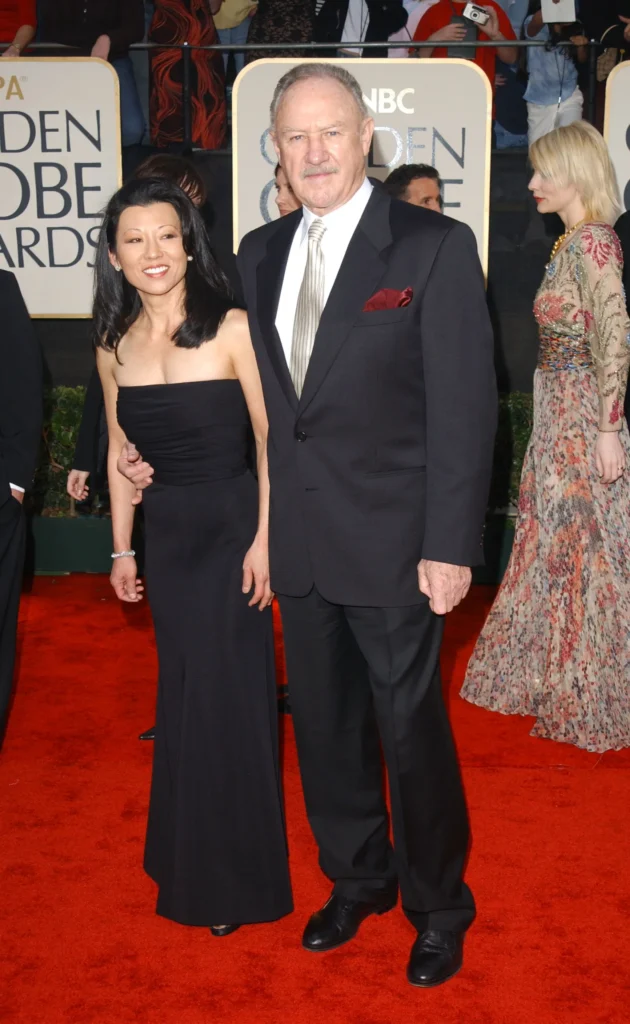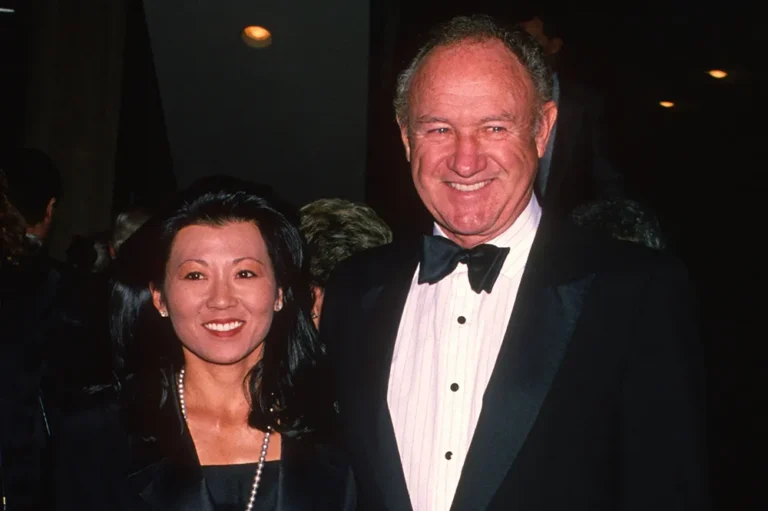Remembering a Hollywood Legend
Gene Hackman Cause of Death was not just an actor — he was an icon of American cinema. With a career spanning more than four decades and a portfolio filled with diverse, compelling roles, Hackman left a permanent mark on film history. Whether he was playing a gritty detective in The French Connection or a corrupt sheriff in Unforgiven, Hackman brought unmatched intensity, authenticity, and charisma to the screen. So, when news of his death spread, fans across the globe mourned deeply.
This article explores Gene Hackman cause of death, his final years, and the lasting legacy of a man who helped redefine acting in Hollywood. We delve into the verified facts, address the rumors, and honor his enduring impact.
Gene Hackman’s Early Life and Rise to Fame
From San Bernardino to Stardom
Born on January 30, 1930, in San Bernardino, California, Eugene Allen Hackman experienced a turbulent childhood. His parents divorced when he was young, and he moved frequently with his mother. At the age of 16, Hackman lied about his age to enlist in the U.S. Marine Corps. This early chapter in his life helped shape the grit and determination he would later bring to his film roles.
After leaving the military, Hackman studied journalism and television production but soon gravitated toward acting. He enrolled at the Pasadena Playhouse, where he met fellow aspiring actor Dustin Hoffman. Despite being voted “least likely to succeed” by his classmates, Hackman pressed on, eventually relocating to New York City to pursue theater.
Breakthrough Roles and Critical Acclaim
Gene Hackman’s breakout role came in 1967 with Bonnie and Clyde, where he played Buck Barrow, the brother of Clyde. The performance earned him his first Academy Award nomination for Best Supporting Actor. Just four years later, he would win an Oscar for Best Actor in The French Connection (1971), playing Popeye Doyle — a role that showcased his raw intensity and cemented his place among the greatest actors of his generation.
From there, Hackman continued to build a formidable résumé with films like The Conversation (1974), Superman (1978, where he played the villainous Lex Luthor), and Mississippi Burning (1988). His ability to switch seamlessly between hero and villain made him one of the most versatile actors in the business.
Final Years and Life Away from the Spotlight
Retirement from Acting
In 2004, after completing Welcome to Mooseport, Hackman quietly stepped away from acting. Though he never issued a dramatic retirement announcement, he confirmed in later interviews that he had no plans to return to the screen.
Instead, Hackman turned his creative energies toward writing. He co-authored several historical fiction novels with underappreciated success. He also embraced a quiet life with his wife, classical pianist Betsy Arakawa, in Santa Fe, New Mexico. Hackman enjoyed painting, writing, and cycling — far removed from the red carpets and Hollywood premieres.
Public Appearances and Health Rumors
Following his retirement, Hackman made very few public appearances, sparking rumors and speculation about his health. Paparazzi occasionally captured photos of the aging star, often walking with a cane or appearing frail. However, his representatives consistently downplayed any serious health issues, emphasizing that Hackman was simply enjoying a private, peaceful life.
Gene Hackman Cause of Death: Confirming the Facts

When Did Gene Hackman Die?
As of this writing in April 2025, Gene Hackman is alive and well at the age of 95. The actor has been the subject of multiple internet death hoaxes over the years, leading to confusion and premature obituaries being shared online. These hoaxes, often fueled by social media misinformation, have falsely claimed that Hackman passed away — when, in reality, he continues to enjoy his life out of the public eye.
Death Hoaxes and Online Misinformation
The phrase “Gene Hackman cause of death” trends periodically due to viral social media posts or unreliable news outlets publishing unverified reports. In January 2023, a false report of Hackman’s passing briefly went viral before being debunked by credible news sources and family representatives.
Unfortunately, Hackman has not been the only celebrity targeted by such hoaxes. These incidents often leave fans grieving unnecessarily and reveal the dangers of unchecked digital rumors. In Hackman’s case, the misinformation may stem from his long absence from the public eye, making it easy for false reports to take root.
Clearing Up the Confusion
To clarify: Gene Hackman is still alive and has not died from any illness, accident, or age-related condition. No official sources, including family members, agents, or reputable news networks, have reported his death.
It’s crucial to verify such news through trustworthy channels. Websites like Snopes, Reuters, or Associated Press provide fact-checked updates, helping to distinguish truth from speculation. The current claims regarding Gene Hackman’s cause of death are unfounded.
Why the Public Is So Invested in Hackman’s Health
The Power of Nostalgia
Gene Hackman represents a golden age of acting — a time when performance mattered more than celebrity. Many fans grew up watching him in films that are now considered classics. His portrayal of deeply human, often flawed characters resonated with audiences in ways few others could achieve. For many, his roles felt personal.
As such, any news surrounding his health — true or false — hits home. People fear the loss of another irreplaceable talent and seek closure or confirmation.
Legacy and Impact on Cinema
Even in retirement, Hackman’s work continues to influence actors and filmmakers. Directors such as Quentin Tarantino and Christopher Nolan have cited his performances as masterclasses in nuance and depth. His characters remain subjects of academic analysis and film school curricula.
Hackman’s ability to portray strength, vulnerability, cruelty, and compassion — sometimes all in the same scene — made him a rare breed. When people search for “Gene Hackman cause of death,” they are often searching not just for news, but to understand what the world loses when a giant like Hackman eventually leaves us.
Media Responsibility in Reporting Celebrity Deaths
The Role of Journalism in the Digital Age
The rush to be first in today’s 24/7 news cycle often sacrifices accuracy for speed. This has led to repeated instances of false celebrity death reports, causing widespread distress. In Hackman’s case, multiple outlets have been forced to retract premature obituaries or explain mistaken identity cases.
Responsible journalism involves cross-verification with family members, management teams, and public records before publishing sensitive news. Unfortunately, clickbait culture often overrides these standards.
How Fans Can Avoid Falling for Hoaxes
For readers and fans, the best defense is skepticism. Look for blue-check verification, established news brands, and multiple source confirmations before believing or sharing reports. If one obscure website claims a celebrity has passed away, but no one else has reported it, it’s likely a hoax.
A Life Worth Celebrating – While He’s Still With Us
Rather than focusing on Gene Hackman’s cause of death — which, to reiterate, is nonexistent — it may be more meaningful to focus on what he gave us in life.
His performances in Hoosiers, The Royal Tenenbaums, Unforgiven, and The French Connection continue to captivate and inspire. He taught us that acting was not about showmanship but truth — emotional honesty on screen. He didn’t need gimmicks or celebrity scandals to stay relevant; his talent did all the work.
Conclusion
While rumors may circulate and headlines may mislead, the truth remains clear: Gene Hackman is alive, and his legacy is more vibrant than ever. The phrase “Gene Hackman cause of death” might be trending, but it’s a search born out of love, admiration, and the fear of losing someone who means so much to so many.
As fans, we have the rare opportunity to celebrate a legend while he’s still here. Hackman’s career is a towering achievement in cinema, and though he may no longer be in the spotlight, his work continues to light up screens and hearts alike.
So let’s honor Gene Hackman — not by mourning a death that hasn’t occurred, but by revisiting his films, sharing his interviews, and passing down his art to future generations.
Read more: Remontada: The Greatest Comebacks in Football History


